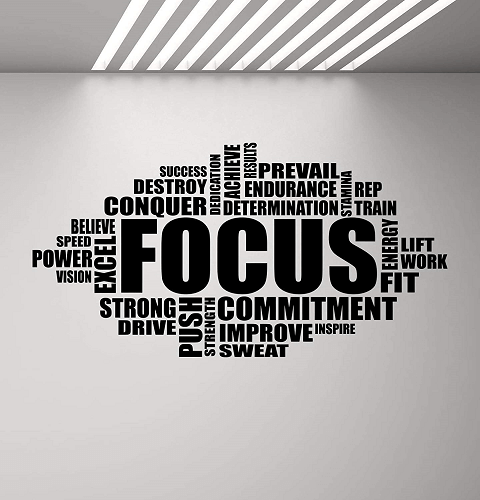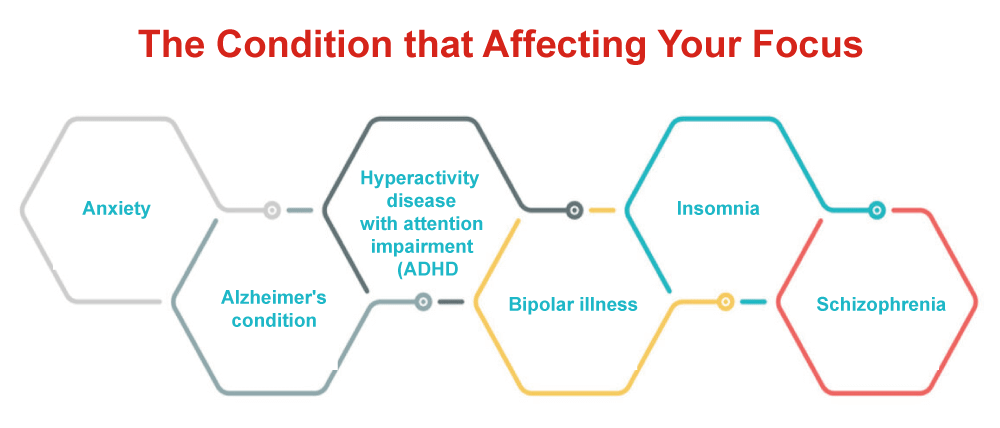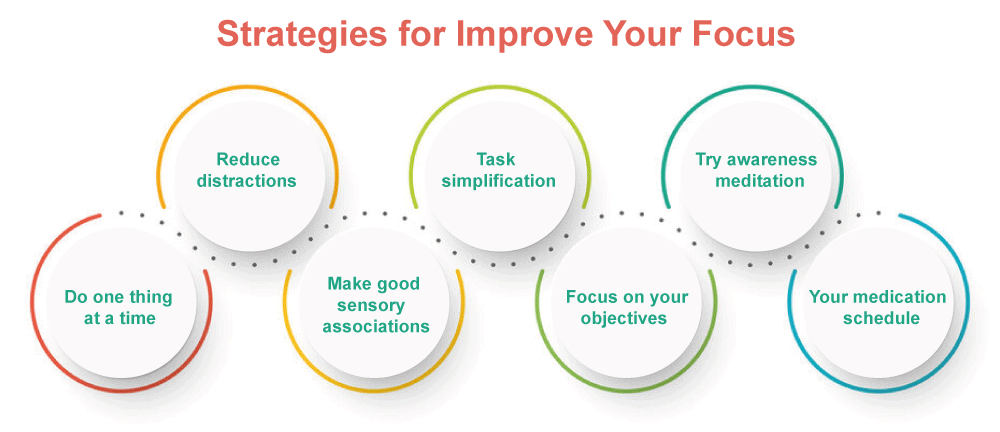Focus DefinitionFocus is the capacity for cognition of directing your focus to a single activity and being entirely engaged in it without interruption, according to Sabrina Romanoff, PsyD, professor at Yeshiva University, a clinical psychologist. 
If you've ever found yourself in a circumstance where you were bodily present but psychologically absent, the focus is what is lacking. The article examines the focus's definition, qualities, advantages, and disadvantages and offers a few points on focusing and concentrating better. Definition of Focus
Focus is the mental capacity that enables people to start a job without delay and keep up their concentration and hard work until the task is finished. Focus helps individuals to maintain their main objective in the face of interruptions and setbacks, as well as the effort and energy required to accomplish a task. For instance, a young person using excellent focus skills would settle down to start writing an essay and then carefully complete it without losing interest in the television, the Internet, or colleagues. Kids can practice their focusing abilities while participating in an enjoyable and engaging gameplay experience due to video games, which can help kids concentrate. Focus's Characteristics
According to Dr. Romanoff, concentrated focus can be characterized as being in a state of flow where you completely engage in the work and don't need to block out distracting information intentionally. Dr. Romanoff provides the following illustrations of what focus could require
Advantages and Disadvantages of Focus
Here are some advantages and disadvantages of focus. Advantages of FocusAccording to Dr. Romanoff, focusing lets you commit completely to a task without removing other ideas or activities from your mental area. Disadvantages of FocusIn addition to being troublesome, having too much focus can also be detrimental. It can be harmful to be so intensely focused on something that you develop tunnel vision and lose awareness of everything else. The Condition that Affecting Your Focus
Various mental health issues can impact your capacity for concentration. Dr. Romanoff claims that these might include 1. Anxiety You may have recurring, bothersome ideas that make you feel anxious and make it challenging to focus on the job. 2. Alzheimer's condition You might need help concentrating, thinking, or recalling, especially regarding abstract ideas like numbers. 3. Hyperactivity disease with attention impairment (ADHD) If you have ADHD, you might experience periods of inattention, when you can't remain still and focus on anything, and periods of hyperfocus, when you're engaged in extreme focus. 4. Bipolar illness In contrast to a melancholy episode, which can make it difficult to stay focused or make choices, a manic episode can cause racing ideas and make it difficult to focus on just one thought. 5. Insomnia You may find it easier to focus for long periods if you get enough restful sleep. 6. Schizophrenia You might find it difficult to stay focused, lose your line of thought, and jump from one concept to another. You may also find it difficult to focus due to worry, lack of sleep, hunger, dehydration, discomfort, bad eating habits, an inactive lifestyle, or certain medicines. Strategies for Improve Your Focus
Dr. Romanoff offers the following strategies to assist you in improving your focus. 1. Reduce Distractions Reduce chaos and other distractions while you're trying to focus. For example, if you're attempting to work, you can turn off the radio and television, place your phone on silent, and remain in a quiet area alone without other people around interfering with you. 2. Do One Thing at a Time Research indicates that the human brain cannot multitask and can only concentrate on one thing at a time. To avoid multitasking, attempt to focus on one job at a time and finish it before moving on to the next. 3. Task Simplification Simplifying jobs or dividing them into more doable portions can be beneficial. 4. Make Good Sensory Associations Improving the sensory experience and making good links are two ways to make the job more engaging. You can, for example, complete the task in a stunning, peaceful setting or spray your preferred fragrance while working on it. 5. Try Awareness Meditation Focusing all of your concentration on something during mindfulness meditation, such as your breath, specific bodily parts, or music. Though it's normal for your attention to stray, meditation needs you to return it to your current focus. Regularly using this practice strengthens your concentration and trains your brain to be more attentive. 6. Focus on Your Objectives Keeping your objectives in mind can inspire you to focus on the tasks you must finish to get there. 7. Your Medication Schedule It may be beneficial to talk to your doctor about changing your drug plan if you're taking medication for a mental health condition so that your peak periods of concentration coincide with the times of day when you need them. ConclusionFocusing is a crucial brain skill that aids in finishing the task. It is essential for writing, researching, reading, and listening. You can take action to sharpen your focus and be more successful if you're having trouble focusing. If further help is required, you can also contact a mental health expert.
Next TopicGibbs Energy Definition
|
 For Videos Join Our Youtube Channel: Join Now
For Videos Join Our Youtube Channel: Join Now
Feedback
- Send your Feedback to [email protected]
Help Others, Please Share









